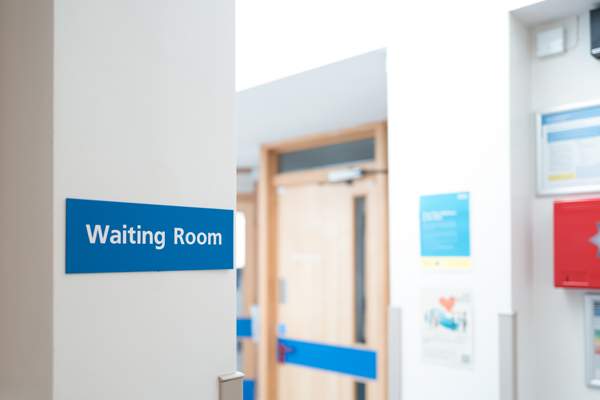What You Need to Know About How to Become a Pharmacist in the UK

Working as a pharmacist in the UK places you in an important role in healthcare. It takes a solid academic background, rigorous training and a genuine commitment to improving patient healthcare to find success here. The role of a pharmacist in the healthcare system is incredibly important, as you will be helping to provide patients with medications through dispensing and advising them about drug interactions. So, if you’re considering a career in this profession, this article will tell you what you need to know about becoming a pharmacist in the UK.
How to Become a Pharmacist in the UK
Becoming a pharmacist in the UK requires a blend of academic qualifications and real-life experience, so it takes several years to start working as a pharmacist. Below is a general overview of the career pathway for pharmacists in the UK:
Educational Pathways
The first step to becoming a pharmacist in the UK is to obtain a Master of Pharmacy (MPharm) degree, which is accredited by the General Pharmaceutical Council (GPhC). This program typically spans four years and combines both theoretical studies and practical experiences. To be eligible for an MPharm course, you typically need to have A-levels in chemistry and at least one other science subject (biology, physics, or mathematics).
Professional Training
After completing your MPharm degree, you must undertake a one-year pre-registration training period. This is a paid position, usually within a community or hospital pharmacy, where you gain hands-on experience under the supervision of a qualified pharmacist. At the end of your pre-registration training, you need to pass the GPhC registration assessment.
Registration and Professional Development
Once you pass the registration assessment, you can apply to the GPhC to become a registered pharmacist. Registration is necessary to practice legally in the UK. As a registered pharmacist, you will need to adhere to professional standards and engage in continuous professional development (CPD). As you gain experience, there are numerous paths for career development. Pharmacists can specialise in areas such as hospital pharmacy, industrial pharmacy, or academic research. Additional qualifications can be pursued, such as a Doctorate in Pharmacy (PharmD) or certifications in specialised fields like oncology or paediatrics.
Job Opportunities and Earnings for Pharmacists in the UK
Pharmacists are highly sought after in various settings, including hospitals, community pharmacies, the pharmaceutical industry, and academia. The demand for pharmacists has been steadily increasing, driven by the complex medical needs of an ageing population and ongoing public health challenges. Starting salaries for pharmacists in the UK vary by sector. Community pharmacists typically start at around £37,000 per year, while those in hospitals can earn slightly more. With experience, salaries can increase significantly, especially for those who move into management positions or specialise in a particular area of pharmacy.
How to Become a Pharmacist in the UK as a Non-UK National
For non-UK nationals looking to practice pharmacy in the United Kingdom, you will need to meet the specific requirements set by the General Pharmaceutical Council (GPhC). The process can vary depending on whether you have qualified as a pharmacist outside of the European Economic Area (EEA) or within it. Below is a general overview of the process for both EEA and non-EEA qualified pharmacists:
For EEA Qualified Pharmacists
Pharmacists who have qualified in EEA countries and have been practising there may have their qualifications recognised directly in the UK through the Mutual Recognition of Professional Qualifications Directive. However, they might still need to provide proof of their professional experience, competence, and language proficiency. All pharmacists, regardless of their country of qualification, must demonstrate proficiency in English to be able to register with the GPhC. This usually involves passing a language test, such as the International English Language Testing System (IELTS), to a standard specified by the GPhC.
For Non-EEA Qualified Pharmacists
The first step is to have your pharmacy qualification evaluated by the GPhC. This involves submitting your credentials and other relevant documents for assessment to determine if your qualification is comparable to at least a UK bachelor's degree in pharmacy by ENIC. If it is determined to be comparable, you can proceed to the next steps. If not, you may need to undertake additional training or exams. If required, non-EEA pharmacists must complete an Overseas Pharmacists Assessment Programme (OSPAP). This is a one-year postgraduate diploma designed to ensure that pharmacists trained abroad have the knowledge and skills to practice in the UK. After completing the OSPAP, candidates must undertake the pre-registration training and pass the GPhC registration assessment as UK-trained pharmacists do.
Registration and Practice
Once the educational and assessment requirements are satisfied, non-UK nationals must complete the GPhC registration process. This includes submitting a formal application, paying the required fees, and providing any additional documentation requested by the GPhC. After registration, all pharmacists in the UK must engage in continuous professional development (CPD) to maintain their registration and ensure they remain up-to-date with the latest practices and standards in pharmacy.
Working as a Locum Pharmacist
In recent years, many pharmacists have transitioned towards locum work due to the extended benefits this working arrangement offers. A locum pharmacist temporarily fills roles within pharmacies, often covering for absent staff, additional demand, or specific projects. These positions can be in community pharmacies, hospital settings, and sometimes within other healthcare institutions.
Benefits of Locum Work
One of the primary benefits of working as a locum pharmacist is flexibility. Locum pharmacists have the freedom to choose when and where they work, often managing their schedules to fit personal commitments. This level of control can provide a significant work-life balance that might not be as achievable in permanent roles. Financially, locum pharmacists may also have the opportunity to earn a higher hourly rate compared to their permanently employed counterparts. This is because they can often negotiate their pay based on demand and the urgency of the need for their services. With the right assignments (and by working with a reputable agency like Globe Locums), locum pharmacists can earn up to £40 per hour, so it’s a fantastic way to earn more in your career.
Start Your Journey Towards Being a Pharmacist Today
Becoming a pharmacist in the UK is a path filled with opportunities for personal and professional growth. It requires a strong foundation in sciences, dedication to lifelong learning, and a passion for patient care. For those aspiring to join this dynamic field, the journey is demanding but immensely rewarding, with the chance to make a lasting impact on public health.
If you’re looking to move into a locum pharmacist role, then our team at Globe Locums would love to help you. Please get in touch with us today to discuss your needs and background further.

Latest Pharmacy Jobs
We currently have a variety of locum and permanent vacancies across the UK and Ireland





